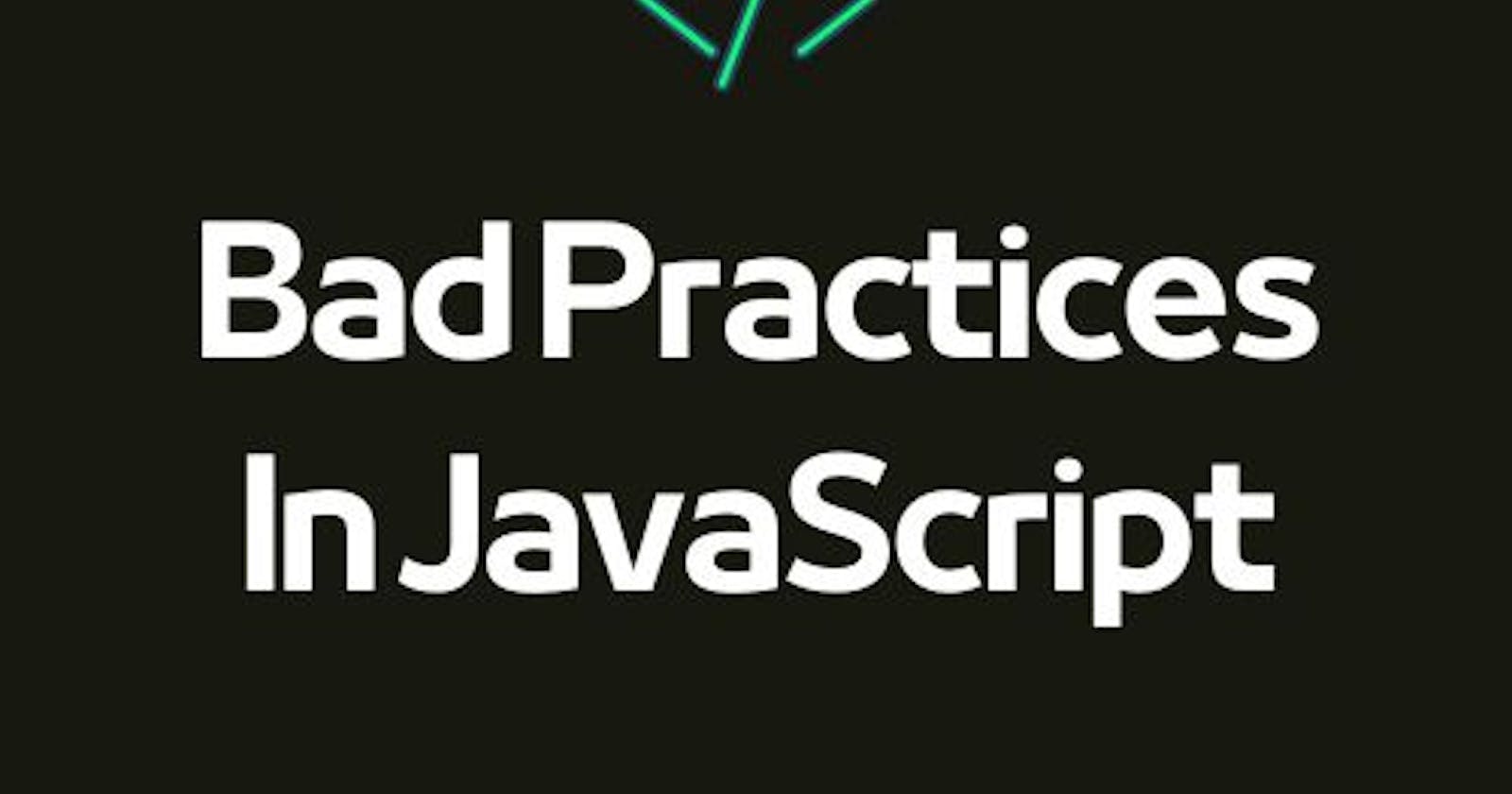Certainly, here are some common bad practices in JavaScript that you should avoid to write clean, maintainable, and efficient code:
- Using Global Variables: Relying heavily on global variables can lead to naming conflicts, unintended data modification, and difficulty in debugging and maintaining code.
// Global variable
var globalCounter = 0;
function incrementCounter() {
globalCounter++;
console.log(globalCounter);
}
// Avoid global variables
function incrementCounter(counter) {
counter++;
console.log(counter);
return counter;
}
let localCounter = 0;
localCounter = incrementCounter(localCounter);
- Not Using Proper Variable Declaration: Always declare variables with
var,let, orconstto avoid polluting the global scope and to ensure proper scoping.
//Bad Practice: Using var instead of const/let
var count = 0;
//Better Practice
let count = 0; // Use let or const based on reassignment
const MAX_COUNT = 10; // Use const for constants
- Not Handling Errors: Failing to handle errors can lead to unexpected crashes or issues in your application. Always use try-catch blocks or promises to handle potential errors gracefully.
// Not handling errors
try {
// Code that might throw an error
} catch (error) {
// No error handling
}
// Handling errors
try {
// Code that might throw an error
} catch (error) {
console.error("An error occurred:", error);
}
- Callback Hell: Nesting callbacks excessively (also known as callback hell) can make code difficult to read and maintain. Consider using promises, async/await, or libraries like
async.jsto manage asynchronous operations more elegantly.
asyncFunction1(() => {
asyncFunction2(() => {
asyncFunction3(() => {
// More nested callbacks
});
});
});
//Better Practice
asyncFunction1()
.then(() => asyncFunction2())
.then(() => asyncFunction3())
.then(() => {
// Code after all async operations
})
.catch((error) => {
console.error("An error occurred:", error);
});
- Not Using "strict" Mode: Not using strict mode can lead to subtle bugs. Enable strict mode by adding "use strict"; at the beginning of your script or function.
- Ignoring Semicolons: While JavaScript allows optional semicolons, it's a good practice to include them. Omitting semicolons can lead to unexpected behavior due to automatic semicolon insertion
const message = "Hello"
console.log(message)
//Better Practice
const message = "Hello";
console.log(message);
- Using == Instead of ===: Always use strict equality (===) instead of loose equality (==) to avoid type coercion and unexpected comparison results.
if (value == 10) {
// This could lead to unexpected type coercion
}
if (value === 10) {
// Use strict equality to avoid type coercion
}
